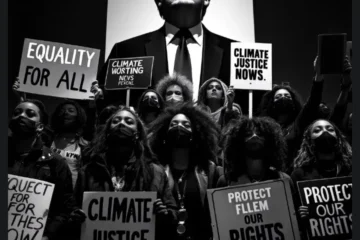As the world grapples with the existential threat of climate change, the actions and policies of major emitters like China, Russia, India, and the United States will be pivotal in determining our collective fate. These four nations, with their economic and geopolitical heft, have taken divergent paths in confronting the crisis, each shaped by their unique circumstances and priorities. Yet, their choices will have profound implications not just for their own populations but for the entire planet.
China: The Renewable Superpower?
China, the world’s largest emitter, has set ambitious targets to become carbon neutral by 2060 and peak emissions before 2030. This economic juggernaut is rapidly expanding renewable energy sources like solar and wind power, positioning itself as a potential leader in the clean energy revolution. However, the reality on the ground is more complex, with coal still accounting for a significant share of its energy mix, and over 130 GW of new coal power plants approved in the past year alone.
The consequences of China’s actions are monumental. Failure to meet its climate commitments would severely undermine global efforts to limit warming, potentially locking in high emissions for decades. Moreover, the country’s coastal megacities like Shanghai face grave threats from rising seas and extreme weather events, putting millions at risk.
Russia: The Fossil Fuel Holdout?
In stark contrast, Russia has taken a more passive approach, relying heavily on fossil fuel exports like natural gas to power its economy. While it has ratified the Paris Agreement, its emissions reduction targets remain modest, reflecting a reluctance to pivot away from its lucrative hydrocarbon industry.
However, this strategy carries significant risks. As the world transitions towards clean energy, Russia’s continued dependence on fossil fuels could leave it with stranded assets and a stagnating economy. Furthermore, the Arctic regions, home to many indigenous communities, are warming at an alarming rate, threatening infrastructure and traditional ways of life.
India: The Balancing Act
India, the third-largest emitter, finds itself in a delicate balancing act. With a rapidly growing population and economy, its energy demands are soaring, and coal remains a major source of power. Yet, the country has set ambitious targets to achieve net zero emissions by 2070 and generate 40% of its energy from non-fossil sources by 2030.
The consequences of India’s choices are particularly acute. Failure to adapt and mitigate could jeopardize food and water security for hundreds of millions, as rising seas, droughts, floods, and heat waves threaten agricultural productivity and coastal regions. At the same time, missing its renewable energy targets could lock in high emissions growth, exacerbating the global climate crisis.
The United States: The Reluctant Leader?
The United States, the second-highest emitter, has rejoined the Paris Agreement under President Biden and set a goal of net zero emissions by 2050, with major investments in clean energy. However, fossil fuels like oil and natural gas still play a significant role, and emissions have fluctuated in recent years.
The consequences of inaction for the US are far-reaching. Continued high per capita emissions and failure to lead could undermine its economic competitiveness and global influence. Moreover, many coastal cities, infrastructure, and military bases are at risk from sea level rise, while agricultural productivity in many regions is threatened by drought, heat, and extreme weather.
A Shared Destiny
While the approaches of these four powers vary, their fates are inextricably linked. Experts warn that without greater cooperation and emissions cuts by major emitters, the world is on track to miss the Paris Agreement’s temperature goals, with catastrophic consequences for the environment, economies, and global stability.
The potential impacts are staggering: trillions of dollars in economic losses, mass climate migration, conflicts over scarce resources, and the irreversible loss of ecosystems like coral reefs and rainforests. Public health risks from air pollution and the spread of vector-borne diseases could also escalate.
In this high-stakes game, the choices made by China, Russia, India, and the United States will reverberate across generations. Will they rise to the challenge, embracing bold climate action and international cooperation? Or will they succumb to short-term interests, condemning the world to a future of escalating crises?
The clock is ticking, and the world watches with bated breath, hoping that these four powers will recognize their shared destiny and take the necessary steps to safeguard our only home, planet Earth.
Navigating the Energy Transition
As nations grapple with this monumental challenge, the expertise and guidance of firms like DVC Consultants will be invaluable in navigating the complexities of the energy transition. With deep knowledge of renewable energy technologies, regulatory frameworks, and market dynamics, DVC Consultants is well-positioned to support governments, utilities, and businesses in charting a course towards a sustainable future.
Their team of seasoned professionals brings a wealth of experience in areas such as renewable energy project development, grid integration, energy forecasting, and ancillary services. This comprehensive understanding of the technical, economic, and regulatory aspects of the energy sector enables DVC Consultants to provide strategic advisory services tailored to the unique needs of each client.
As the world pivots towards cleaner energy sources, DVC Consultants’ expertise in areas like wind and solar power, energy storage, and smart grid technologies will be instrumental in facilitating the large-scale deployment of renewables. Their insights into emerging trends, such as offshore wind and green hydrogen, can help stakeholders stay ahead of the curve and capitalize on new opportunities.
Moreover, DVC Consultants’ deep understanding of energy markets and policies positions them as a valuable partner for governments and regulators seeking to create an enabling environment for the energy transition. Their ability to bridge the gap between policymakers, utilities, and project developers can help streamline the implementation of renewable energy initiatives and drive progress towards ambitious climate goals.
As the world grapples with the existential threat of climate change, the role of firms like DVC Consultants in accelerating the energy transition cannot be overstated. With their deep technical expertise, market insights, and commitment to sustainability, they are poised to play a pivotal role in shaping a cleaner, more resilient, and more equitable energy future for all.
If you would like to know more about our capabilities in this sector contact q.anderson@dvcconsultants.com




0 Comments